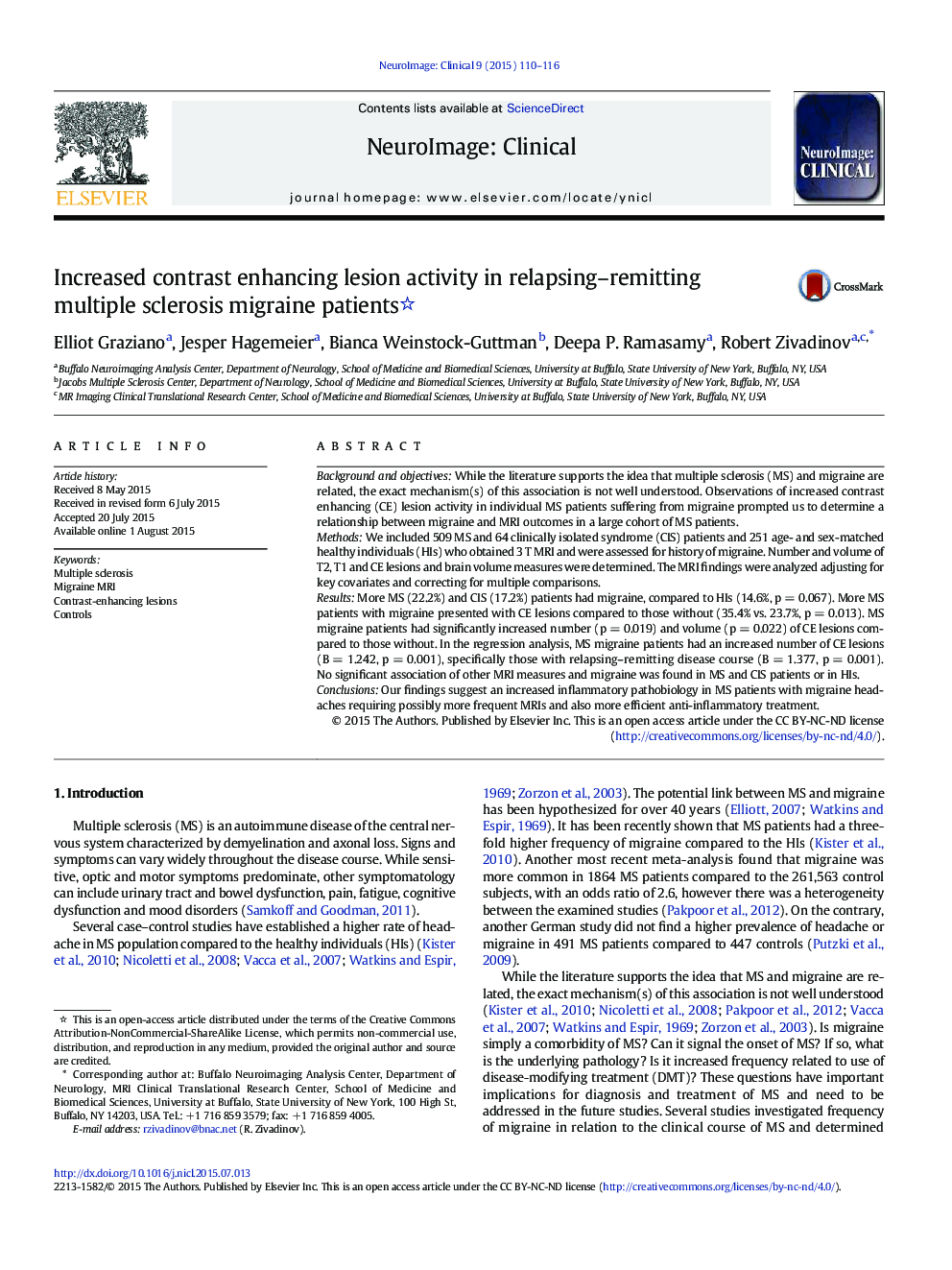| Article ID | Journal | Published Year | Pages | File Type |
|---|---|---|---|---|
| 3075161 | NeuroImage: Clinical | 2015 | 7 Pages |
•We examined 509 MS and 64 CIS patients and 251 healthy individuals.•Subjects were assessed with 3 T MRI and for history of migraine.•More MS and CIS patients had migraine, compared to healthy controls.•More MS migraine patients presented with enhancing brain lesions compared to those without.•MS migraine patients had an increased number and volume of enhancing lesions.
Background and objectivesWhile the literature supports the idea that multiple sclerosis (MS) and migraine are related, the exact mechanism(s) of this association is not well understood. Observations of increased contrast enhancing (CE) lesion activity in individual MS patients suffering from migraine prompted us to determine a relationship between migraine and MRI outcomes in a large cohort of MS patients.MethodsWe included 509 MS and 64 clinically isolated syndrome (CIS) patients and 251 age- and sex-matched healthy individuals (HIs) who obtained 3 T MRI and were assessed for history of migraine. Number and volume of T2, T1 and CE lesions and brain volume measures were determined. The MRI findings were analyzed adjusting for key covariates and correcting for multiple comparisons.ResultsMore MS (22.2%) and CIS (17.2%) patients had migraine, compared to HIs (14.6%, p = 0.067). More MS patients with migraine presented with CE lesions compared to those without (35.4% vs. 23.7%, p = 0.013). MS migraine patients had significantly increased number (p = 0.019) and volume (p = 0.022) of CE lesions compared to those without. In the regression analysis, MS migraine patients had an increased number of CE lesions (B = 1.242, p = 0.001), specifically those with relapsing–remitting disease course (B = 1.377, p = 0.001). No significant association of other MRI measures and migraine was found in MS and CIS patients or in HIs.ConclusionsOur findings suggest an increased inflammatory pathobiology in MS patients with migraine headaches requiring possibly more frequent MRIs and also more efficient anti-inflammatory treatment.
